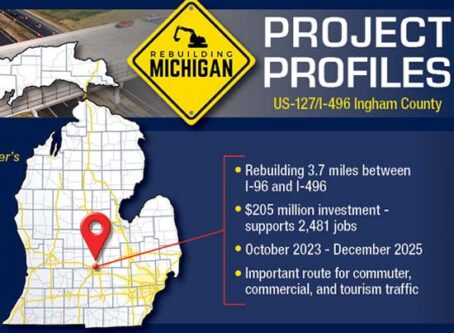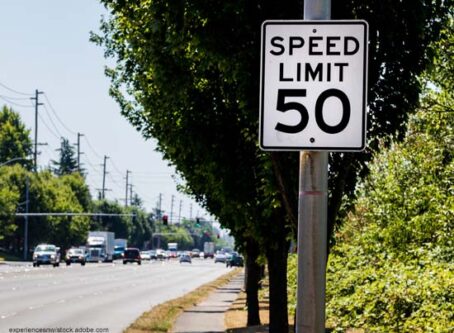Four states take action on ticket cameras
State lawmakers around the country are pursuing rules on the use of automated cameras to ticket drivers.
The action comes as new federal guidance authorizes states to tap billions for roadway safety programs.
U.S. Transportation Secretary Pete Buttigieg earlier this year unveiled plans to address a record increase in traffic deaths on the nation’s highways. Automated ticket cameras were included among the tools identified to aid reducing fatalities.
The U.S. Department of Transportation’s national roadway safety strategy addresses the administration’s goal for the program:
“Automated speed enforcement, if deployed equitably and applied appropriately to roads with the greatest risk of harm due to speeding, can provide significant safety benefits and save lives.”
Issue advances in four statehouses
With new federal ticket camera guidance in place, state legislative action from Oregon to Alabama is in favor of or in opposition to the use of automated enforcement cameras.
More than 500 communities around the country employ the use of red-light and/or speed ticket cameras to nab drivers who disobey traffic rules, the Insurance Institute of Highway Safety reports.
Officials with the Owner-Operator Independent Drivers Association say the focus on the revenue-generating devices ignores the more logical and reasoned approach to roads and traffic: keep traffic moving in as safe a manner as possible.
Below is a rundown of recent statehouse activity on the topic.
Alabama
One bill halfway through the Alabama statehouse would authorize the use of ticket cameras in the city of Birmingham.
About a dozen cities around the state use red-light cameras and/or speed cameras. The list includes the cities of Montgomery, Tuscaloosa and Selma.
The Senate voted unanimously to advance a bill to permit the state’s second-largest city to use red-light cameras and speed cameras. Violators would face fines starting at $60.
The bill, SB237, is in a House committee.
California
A bill moving through the California Assembly would expand the state’s authority to use automated enforcement via ticket cameras.
The Golden State already authorizes the use of red-light cameras. The ticketing tool is used in more than 30 areas around the state. Speed cameras, however, are prohibited in the state.
Sponsored by Assembly Transportation Committee Chairwoman Laura Friedman, D-Glendale, and Assembly member Phil Ting, D-San Francisco, and AB2336 would set up a five-year pilot program to utilize speed enforcement cameras in areas identified to have a high number of reckless driving incidents.
As introduced, included locales are Los Angeles, Oakland, San Jose, and the city and county of San Francisco.
The bill was amended in the Assembly Transportation Committee to add the city of Glendale and one southern California city to the pilot program.
Fines would range from $50 to $500 for offenders found exceeding the post speed by more than 10 mph. No points would be added to an offender’s license.
Revenue from ticket cameras would be used to administer the program and pay for “traffic calming measures.”
Supporters say use of the enforcement tool makes travel safer. They add that it reduces police interactions with drivers while maintaining driver accountability.
The committee voted late last month to advance the bill for further consideration.
Michigan
Pursuit at the Michigan statehouse addresses concern about the use of automated enforcement.
Currently, no communities in the state employ the use of red-light cameras and speed cameras
A Senate-approved bill would prohibit municipalities from installing red-light ticket cameras.
Sen. Lana Theis, R-Brighton, says red-light cameras are not about motorist safety. She says the devices are “cynical revenue grabs, often riddled with corruption with no benefit for the greater good.”
“It’s important Michigan bans the use of red-light cameras on our streets to not only help protect the lives of drivers and passengers, but also to protect their constitutional rights,” Theis said in a news release.
The bill, SB875, is in the House Transportation Committee.
A separate pursuit would go the other way on the topic. Specifically, legislation introduced in both chambers would authorize automated speed enforcement in certain areas.
HB5750/SB874 would permit speed cameras to enforce vehicle speeds in highway or street work zones. Devices would be used when construction workers are present.
Permission would be given to the Michigan State Police, Michigan Department of Transportation, county commissioners, or other local authority having jurisdiction over a highway or street to use automated ticket camera enforcement.
First-time offenders would receive a written warning in the mail. Repeat offenders could face a fine up to $150.
Oregon
There are 11 cities in Oregon, including Portland, where photo radar is permitted on segments of roads.
A 2021 state law authorized all cities with populations of at least 50,000 access to speed cameras. The change affects about a dozen locales.
Oregon statute requires police to review potential violations. Tickets are issued for violators that exceed the posted speed by more than 10 mph.
Gov. Kate Brown has signed into law a bill to relax the requirement for police to review potential violations. Instead, HB4105 allows “trained staff” other than police officers to review camera photos.
Rep. Jeff Reardon, D-Happy Valley, recently told members of the House Rules Committee the change would help agencies who often have open positions and need officers to work overtime to review potential violations.
Reardon highlighted plans in Portland to expand the city’s photo radar program. He said the cost of the program will be increased if officers are required to review potential violations.
The rule takes effect on Jan. 1, 2023. LL
More state trends
Keith Goble, state legislative editor for Land Line Media, keeps track of many trends among statehouses across the U.S. Here are some recent articles by him.









